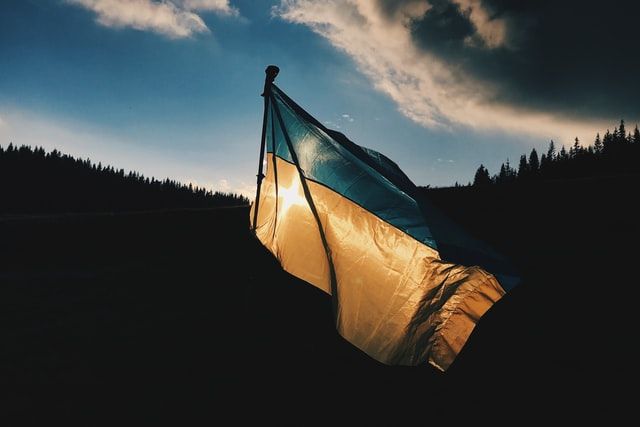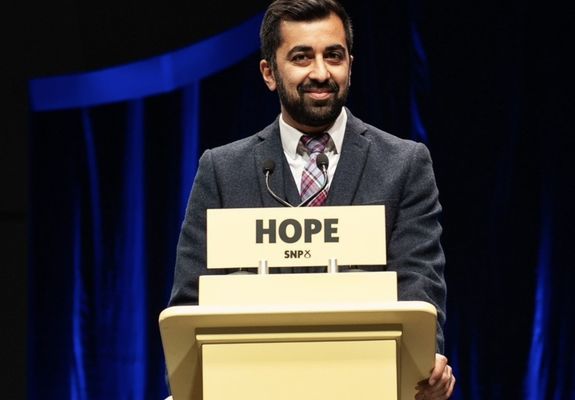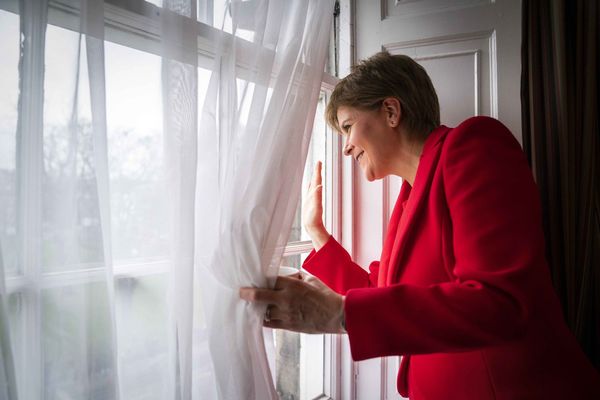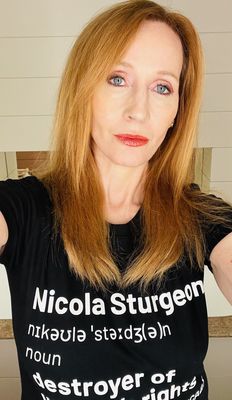Politicians can swear just like the rest of us. But not usually for the record.
Five years ago a usually mild-mannered and softly-spoken Scottish nationalist called Alyn Smith gave a quote to a reporter. It contained an F-word, for printing.
Mr Smith had just been told that a former first minister of Scotland, a former leader of his party, was going to host a weekly show on Vladimir Putin’s biggest international mouthpiece, RT.
🟡 The SNP want to get rid of our nuclear deterrent.
— Andrew Bowie MP (@AndrewBowie_MP) March 7, 2022
🟢 The Greens want to leave NATO.
🏴 The Scottish Government. Stronger for Scotland?
And he was not pleased, to say the least. This was, after all, a PR disaster for the independence cause.
The Alex Salmond Show first aired on Putin TV in 2017. It was suspended late last month as Russian armoured columns smashed in to Ukraine. Since then RT has been legally banned across Europe and, effectively, in the UK.
A lot has changed in Scotland and overseas in the half decade since Mr Smith cursed about his former boss working for a Kremlin propaganda outlet.
Mr Salmond has been acquitted at trial of multiple sex offences, left the SNP and formed a new political party, Alba. His former colleagues, it has to be said, were not sorry to see the back of him.
Surprise surprise 👇 pic.twitter.com/kURVxRZgbD
— Angus Forbes (@angus4carse) March 7, 2022
There are lots of reasons for that. But one is a profound disagreement on Russia, and on foreign policy. It seems an unlikely fissure in Scottish nationalism. But it exists, and it has a long and fascinating history.
At the risk of stating the obvious, the SNP is a party that wants to turn Scotland in to a small independent state. It is therefore not a natural ally of large multi-national states with - as recent events show - harbour imperial ambitions over their neighbours.
Indeed, Scottish nationalist politicians for years have tried to court Nordic and Baltic nation-states as potential partners and taken a firmly multilateralist stance on foreign and defence policy. They are pro-EU and, since 2013, pro-Nato. And were so under Mr Salmond.
Jim Sillars, a former deputy of Mr Salmond, has even argued for Russia to be allowed a “sphere of influence” in Ukraine, essentially denying that country the independence and agency he once sought for his own.
The SNP has also been voluble about Putin’s threats to Ukraine, since long before it was particularly fashionable to do so. Modern Russia, for the mainstream pro-independence figures, is a “prison of nations”.
As Chris Deerin, the Scottish editor of the pro-UK left-of-centre News Statesman magazine said last month, the SNP is the UK’s most anti-Putin party. Would that be the case if Mr Salmond was still in charge?
Quite the situation for a Scottish political party to publish a stronger condemnation about a potential delay of indyref2 due to a war in Europe than it did about the war itself.
— Conor Matchett (@conor_matchett) March 7, 2022
“Today’s SNP is not Salmond’s SNP. Most of its elected politicians have little time for their former leader, view him as an embarrassment,” said Deerin. “At this time of global conflagration, they want the independence movement to speak with a unified voice – there must be no sympathy for or ‘understanding’ of Putin.”
And the voice is mostly unified. But there are dissenters, often older nationalists or those from a tradition of scepticism about western hegemony.
Jim Sillars, a former deputy of Mr Salmond, has even argued for Russia to be allowed a “sphere of influence” in Ukraine, essentially denying that country the independence and agency he once sought for his own.
There are few people in Scotland who buy in to this idea. But there are those, some perhaps steeped in Cold War-era thinking, who see the SNP as too hawkish, too enthusiastic about Nato, if not its nuclear weapons on the Clyde. The Greens are vociferous critics of Putin. But do not want an independent Scotland in Nato.
SOME PREFER NEUTRALITY
They, like some nationalists, prefer neutrality. But what kind? The armed version of Sweden or Finland - both now looking increasingly likely to join Nato? Or the less armed, low-cost stance taken by the Republic of Ireland?
The SNP officially have made it clear they disagree with Ireland’s strategy, which they regard, perhaps impolitely of a major future ally, as pretend neutrality.
Nicola Sturgeon has condemned the UK Government for “not doing anywhere near enough” for refugees fleeing the conflict in Ukrainehttps://t.co/uSj2hOKqTN
— The National (@ScotNational) March 7, 2022
Many opponents of independence say this is irrelevant: that the financial consequences of leaving the UK would make it hard for Scotland to sustain military spending.
And that moving Britain’s Trident submarines from their Scottish bases - still very much SNP policy - would wreck relations with Nato.
In other words, they think Scotland will have to disarm, whether it wants to or not. This, of course, irritates the SNP. But a country can only have the best defence it can afford, as the old adage goes.
UNDER SIEGE: The Ukrainian capital Kyiv. Pic by Robert Anasch on unsplash.com
There is a bigger context here. The rise of the Scottish independence movement at the end of the last century and the beginning of this one was against a backdrop of the collapse of Communism. So too, of course, was the peace process in Northern Ireland.
Devolution came as a score of new nation states appeared in Europe and many others - after decades under Kremlin control - were able to decide their own destiny. There were Scots who say new states like Slovenia or Belarus appear and who wondered about their own place in the world.
It might seem self-centred to ask what effect a war in Europe will have on the desire for independence - and on the practicalities of the defence of a re-established Scottish state.
🎥”The UK is not doing nearly enough”
— Radio Clyde News (@RadioClydeNews) March 7, 2022
🗣First Minister @NicolaSturgeon believes the UK should be following the lead of Ireland when it comes to taking in refugees from Ukraine. pic.twitter.com/boymKQiVTN
There are, of course, more important questions. But the Scottish ones are being asked, nevertheless. A referendum was scheduled for next year, by the SNP, that is. Tories in Westminster have already said they are opposed to such a move. Ukraine could give them a pretext.
The SNP is signalling they too might delay - they have already put their plans on hold thanks to Covid. Ian Blackford, the party’s leader in Westminster, last week said: “We have to play the ball where it lies just now and the only thing that I’m focusing on today is Ukraine.”
REFERENDUM DELAYED
His wider remarks were interpreted as a warning that a referendum might be delayed. Angus MacNeil, an SNP MP probably best described as distant from the leadership, said he doubted there would now be a big vote next year.
And this is where Alex Salmond once again emerges from history. Alba pounced. In a statement describing the SNP’s “surrender” on a referendum, the party demanded more progress towards a vote.
Nations must unite against Putin's attack on Ukraine | @NicolaSturgeon's column 🇺🇦https://t.co/pKosddlweP
— Glasgow Times (@Glasgow_Times) March 2, 2022
Kenny MacAskill, the deputy leader, said Ukraine was “just the latest attempt to justify the total inactivity of the SNP in pushing for independence”.
The war, he said, showed that Scotland needed powers of independence quicker, not least to get rid of nuclear weapons.
Nicola Sturgeon, in particular, has instead made it clear her instinctive response is solidarity with Ukraine.
Mr Salmond on RT was always just filling. The big Kremlin talking points were always pushed more by his unionist counterpart, George Galloway.
But the former SNP leader must still be causing his former colleagues to swear. If, for the time being, off the record.








